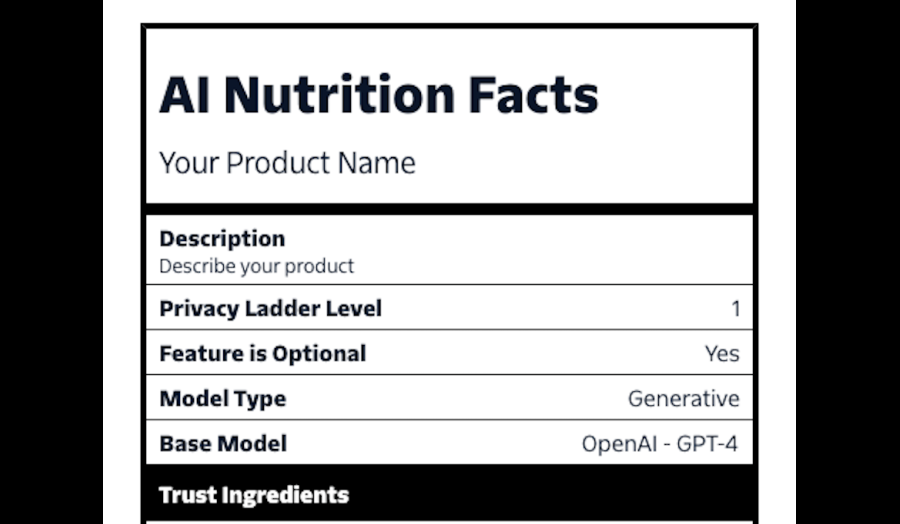A version of this story appeared in the daily Threat Status newsletter from The Washington Times. Click here to receive Threat Status delivered directly to your inbox each weekday.
A version of this article appeared in the daily Threat Status newsletter from The Washington Times. Click here to receive Threat Status delivered directly to your inbox each weekday.
The Biden administration said last week that it is looking at putting artificial intelligence “nutrition labels” on technology products similar to the Food and Drug Administration’s mandatory food labeling regime.
The Departments of Treasury and Commerce published reports scrutinizing the risks of AI that revealed federal officials are studying whether to impose the labels.
“Financial institutions stated that they would benefit from a standardized description, similar to a nutrition label, for vendor-provided Generative AI systems to clearly identify what data was used to train a model, where it came from, and how any data submitted to the model will be incorporated,” the Treasury Department report said.
Department officials said they would work with the financial sector, the National Institute of Standards and Technology, the National Telecommunications and Information Administration, and the Cybersecurity and Infrastructure Security Agency “to identify whether such recommendations should be explored further.”
The Commerce Department’s telecommunications and information agency published a prototype of a label in its report spotlighting a version developed by tech company Twilio.
The sample label is titled “AI Nutrition Facts” and includes details of “Trust Ingredients,” including whether there is a “Human in the Loop,” referring to the level of human participation in the operation of the cutting-edge technology.
“AI nutritional labels, by analogy to nutritional labels for food, present the most important information about a model in a relatively brief, standardized, and comparable form,” said the report by the National Telecommunications and Information Administration.
The report said transparency-oriented reports, cards, data sheets and nutrition labels appeared promising, “and some should become standard industry practice as accountability inputs.”
Implementing a federal labeling regime could prove challenging because the Biden administration found widespread disagreement over how to define AI.
The Treasury Department’s report focused on AI-specific cybersecurity risks to the financial sector. Its researchers interviewed 42 representatives from the sector, information technology firms, data providers, and companies that fight money laundering and fraud. The participants did not share a common definition of AI.
“Treasury found that there is no uniform agreement among the participants in the study on the meaning of ‘artificial intelligence,’” the report said.
The federal government uses an AI definition established in President Biden’s executive order on the technology published last year. Mr. Biden’s definition said AI refers to a machine-based system given human-defined objectives that can make predictions, recommendations or decisions influencing real or virtual environments.
The Biden administration is using one definition, but some participants told the Treasury Department that vendors’ descriptions of how their AI systems worked did not match what financial institutions saw.
The Treasury Department said it would work with the financial sector on AI risk and fraud issues while investigating other AI-related effects on “consumers and marginalized communities.”
• Ryan Lovelace can be reached at rlovelace@washingtontimes.com.





Please read our comment policy before commenting.